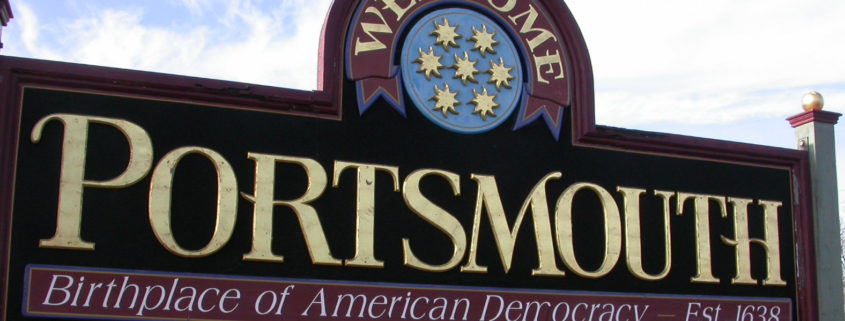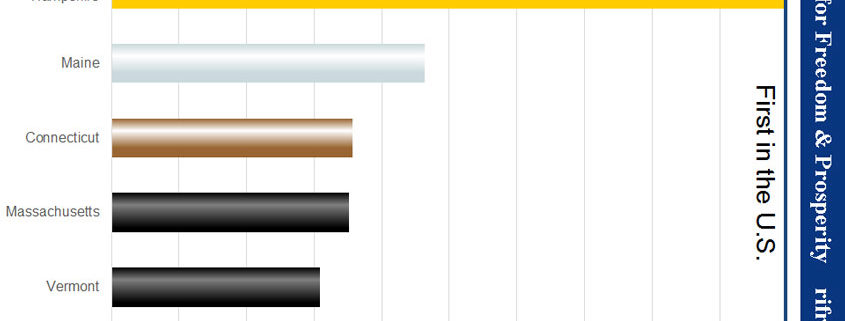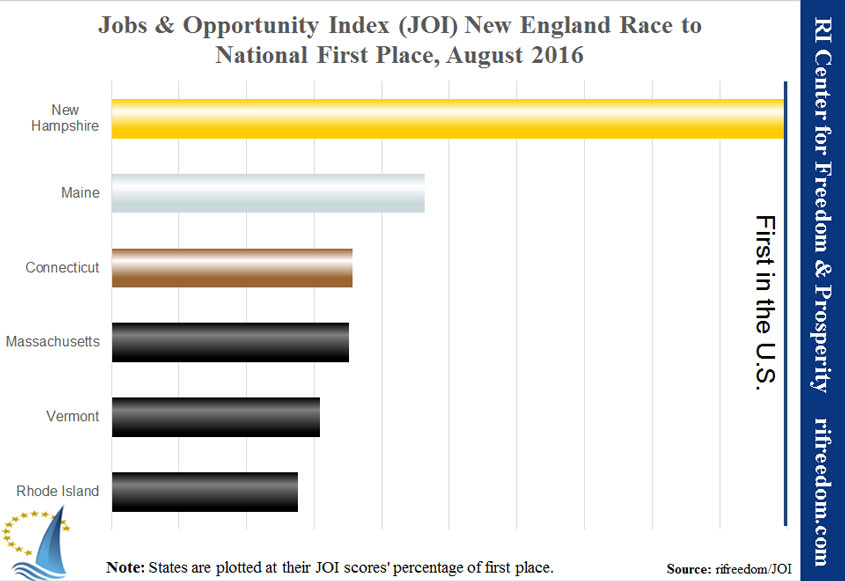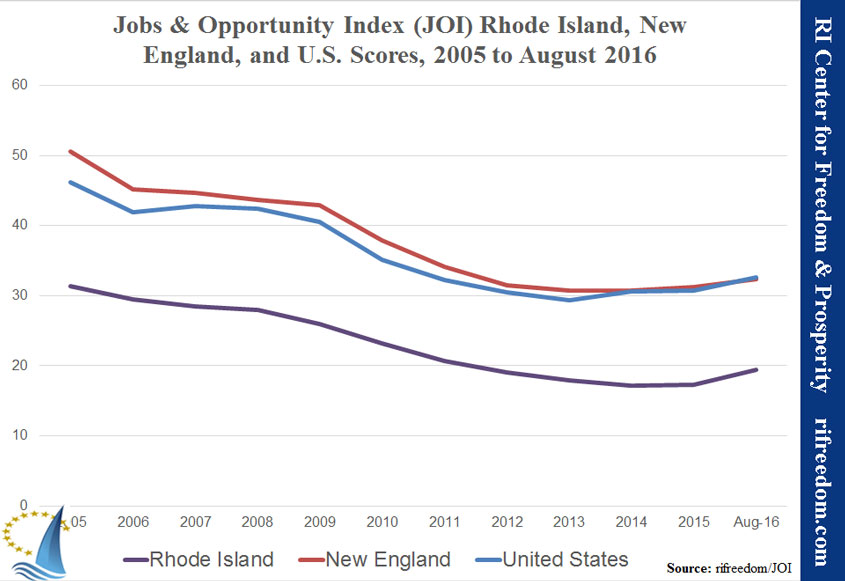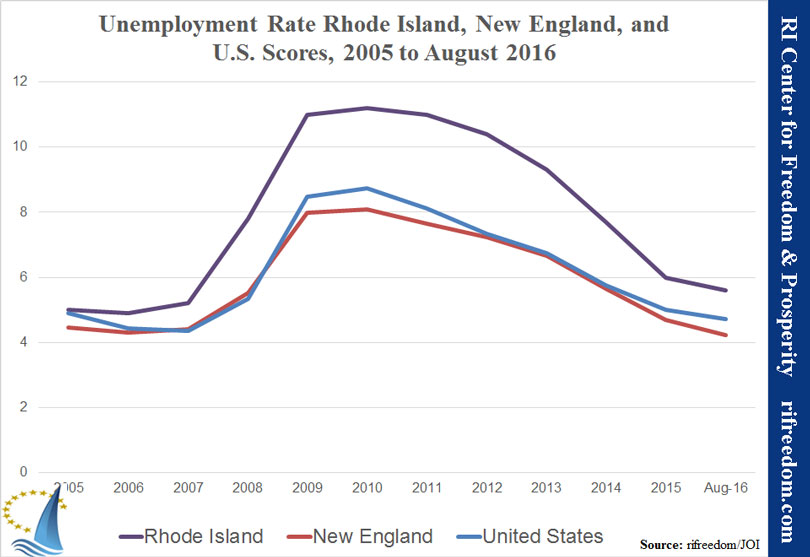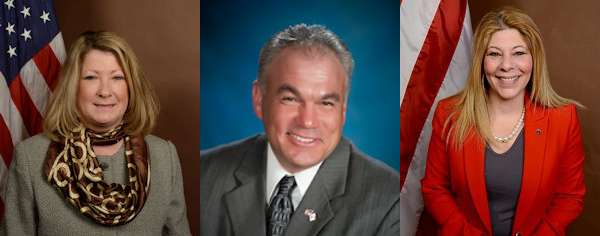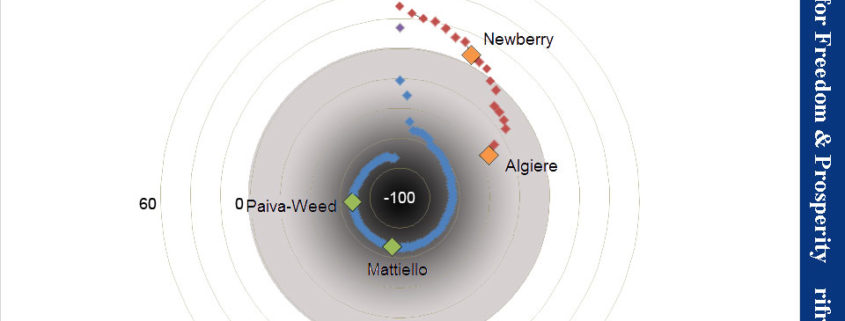At the Rhode Island Department of Environmental Management’s (DEM’s) second of three workshops to publicly review new rules by which the state agency will buy and resell private farmland, the overwhelming majority of the audience had serious concerns about the state’s plan. A few farmers actually walked out in protest. The only apparent supporters were would-be farmers who would benefit from the plan — in typical RI political fashion, gaining off the backs of others.
While the goal of preserving state farmland may be noble, the means by which the DEM plans to accomplish it are anti-free-market and were exposed as not being well considered. According to one farmer who spoke out, the government’s land-grab scheme is anti-American. Paraphrasing his comments: “The government acquiring private farmland is like communism; the state is stealing the American Dream!”
He may be right. Did you know that this farmland acquisition plan is derived from Rhode Island’s own five-year strategic plan, called “A Vision for RI Agriculture”? Joseph Stalin’s five-year collective plans in the darkest days of the U.S.S.R. were an abject failure and economic disaster.
Another person from a local town council inquired: “What economic qualifications does the DEM have to venture into the business of buying and selling farmland and managing private citizen’s money?”
Distrust of DEM and of Government
Many others pointed out that the DEM itself historically has not been a friend of the small business and the farming community, and that government-run projects also have a history of failure and cost overruns. Farmers pointedly commented how the DEM and state government have made it so difficult for many parcels of land to be purchased and profitably farmed.
There are win-win free-market and other alternatives that will not intrude on private business and risk the financial security of current farmers in the Ocean State.
Years ago, the RI Center for Freedom & Prosperity warned Rhode Islanders that the RhodeMap RI scheme, in ways unforeseen at the time and still, would eventually infringe on the rights of property owners and on the sovereignty of local governments. With the establishment of new statewide mandates and the ceding of authority to unelected federal or regional bureaucrats, our long-cherished rights and local ways of government would be incrementally undermined and eroded. Further, we argued that related mandates would lead to adverse economic consequences.
Redistribution of Land
Once again, our warnings have materialized in the government’s attempt to “preserve” RI farmland.
One primary objection stems from the belief that it is not a proper role of government to determine how private property should be used, and that it is certainly not a legitimate role of government to become an owner and lessor of formerly private property. This type of centrally planned, one-size-fits-all governmental interference in the free-market system has a devastating track record and has historically led to unintended and adverse consequences from an economic and personal rights perspective. Just look today at the suffering in Venezuela and Brazil.
Socialism is defined as government control over the means of production. Buying and selling land that complies with a government-created comprehensive plan is exactly what these proposed rules contemplate. That the government further contemplates the leasing of land to private farmers — and, by the way, only to those who will do with it as the government wants — is a reminder of yet another failed and outdated economic system: European-style feudalism.
Regardless of the feel-good rationale and warm-and-fuzzy terms, why would anyone believe we can escape such historical lessons here in Rhode Island?
Make-Believe Economics
Another major objection stems from the stunning lack of economic analysis. At the meeting, dozens of farmers expressed a multitude of economically related concerns, from increased taxes, to reduced farmable acreage, to oppressive land restrictions, to reduced local municipal revenue, to legal expenses.
When the state’s Commerce Corporation weighed in, requiring this program to conform with local comprehensive plans, it was mandating compliance with the so-called “economic development plan” from 2014 called RhodeMap RI, which the Center proved was not an economic development plan at all.
I specifically asked the DEM team if there was any economic study, research, or analysis serving as the basis for their program, and the answer was, “no.”
When the larger RhodeMap RI agenda was unanimously rubber-stamped by the Division of Planning commission years ago (including, by the way, the director of the DEM), not one commission member raised his or her hand when asked who had a background or degree in economics. When I inquired if anyone on the DEM working group that put together this program actually had a background in economics, the answer was once again was, “no.”
Given this lack of relevant inquiry, the Center would like to raise a few legitimate economic concerns about potential unintended consequences of the DEM’s farmland acquisition scheme:
- According to state law and a September 6, 2016, Providence Journal article, as well as the language of proposed DEM rules, the state will buy farmland at market value and resell it at deeply discounted prices. Necessarily, it seems, the program will incur a transactional loss by the government, with the tab of course being picked up by other RI families and businesses. For how long and for how much hard-earned money can taxpayers be expected to absorb this kind of financial hit? Like all sustainable development schemes, this farmland acquisition plan is not economically scalable or sustainable.
- Also we ask, by what economic rationale does the state claim that it is in the best overall interests of Rhode Islanders for certain levels of farmland to be maintained? We believe that such determinations must be market based and determined by the owners of the land. But even those who believe that government experts can make decisions at least as well as the market can should be concerned that there has apparently been zero economic analysis of this program. That is not wise policy; it is arbitrary government fiat. Who’s to say that a specific parcel of land might not be developed more profitably than for farming? If some other legitimate business venture for that land might produce two or three times more jobs and more taxable economic activity and profits, why is this not better for the public good, or for the farmers themselves? Perhaps other land in another part of a town or the state would be better suited for farming than where it is currently conducted or zoned. Government restrictions and mandates preventing the mechanisms of the market from settling such questions have dragged down the Rhode Island economy. In America, is it not the right and responsibility of land owners to seek the most productive and profitable use of their land and property?
- Similarly, if farming can be profitably conducted in our state, then the free-market itself would adjust, with more land naturally partitioned for and converted into farmland to meet that demand — without the need for heavy-handed, centralized government planning. If, however, RI farmers cannot effectively compete with larger regional or national producers, then government mandates that force unsustainable farming can only lead to economic degradation, creating calls for more taxpayer subsidies. A basic lesson of economics is that when supply exceeds demand, prices drop. If they drop too far based on government meddling, farms could go out of business.
- The unintended consequence of this intrusive government program could be to reduce the value of other farmers’ land. When the government maintains excessive supplies of farmland (beyond demand levels) — or sells farmland at artificially reduced prices — again, it is basic supply-and-demand economics that such interference in the market could cause other farmland to be reduced in value. Even farmers in Rhode Island who are not part of this DEM program may be forced to absorb this land value hit! One of the more stunning comments from the DEM team in response to concerns that land values could decrease — a response that drew an audibly negative response from the crowd — was that the “state would control the value of the land it acquired.” Similar government rent-control attempts have led to destructive interference in markets wherever they’ve been tried. Again, as one farmer inquired, by what qualifications can the DEM be trusted to engage in such economically risky activity?
- Similarly, selling some farmland at below-market prices to some farmers will also create an unfair playing field and disrupt productive free-market competition. With an artificially low cost of entry into the agricultural industry, farmers who buy land cheaply from the government will have an unfair advantage over other farmers who have been forced to deal with the higher costs of doing business over the years. This kind of market disruption can also lead to adverse consequences for established farmers who are not even part of the program.
Why do we continually do this to ourselves? This type of intrusion of government centralized planning into the private sector is why the Ocean State has the 50th ranked business climate, why we rank 48th on the Family Prosperity Index, and why we rank 47th on the Jobs & Opportunity Index.
WIN-WIN Solutions
If our government truly wants to preserve farmland and encourage agricultural farming, rather than compounding risky interference, officials should consider freeing up the industry (and the economy more broadly) instead of putting further restrictions on it. It should consider broad-based, free-market reforms that will help all farmers be more profitable and more likely to pass down, and maybe even expand, their farming businesses. Reforms like:
- Elimination of the estate tax (recent reforms have not gone far enough) so that succession planning will not be so costly and destructive to farmers
- Repeal or reduction of the sales tax to reduce the cost of doing business and to increase consumer power by leaving more money in Rhode Islanders’ pockets
- Rolling-back mandates and other regulations that specifically affect farmers and farming, such as certain wetlands restrictions and potential chicken-coup dimension mandates
Some of the farmers at the meeting also offered an interesting idea. The state could put into play public and land-trust lands. Instead of preserving farmland levels by the state’s acquiring and redistributing new property, why not authorize the state to release and sell for private use some of the public land it owns and petition private land trusts to similarly make available lands they own and on which they currently do not allow development of any kind.
Loss for Farmers and RI
There are alternatives to meet the stated goals of the acquisition program. However, the program’s designers apparently have little regard for the failed global history of government control over the means of production. They apparently also believe that, magically, this particular plan can defy the basic laws of economics. Rhode Islanders and Rhode Island farmers live in the real world, not in some utopian land where make believe economics prevail.
This glaring disconnect raises the suspicion that this program is not about good economics and a true concern for Rhode Island farmers. Indeed, the intervention of the Commerce Corporation, demanding that purchasing farmers comply with the RhodeMap RI–inspired state guide plan, is evidence that this land-grab scheme is about politics and advancing a federal sustainable development agenda, in which the government increasingly controls the rights to more and more land.
Even if the Department of Environment Management follows through with its promise — made at the meeting — to amend its proposed rules so as to remove the “state guide plan” requirement from this program, the public cannot have confidence that the promise will have any effect. After all, Speaker of the House Nicholas Mattiello promised that RhodeMap RI would “sit on the shelf.” The insidious nature of creeping government means that the only real protection is explicit laws against infringements on the people’s rights or, better yet, no laws enabling government agencies to begin such programs in the first place.
Property owners’ right to do with their own land as they wish, their right to keep or sell it at their sole option, and their right to realize full economic value for the fruits of their labor are clearly at risk. RhodeMap-style impositions aside, farmers can have no confidence that the farmland acquisition scheme will remain a purely voluntary program. What does it mean, for instance, when the language of the DEM’s proposal states that the agency “will purchase farmland in danger of converting to non-agricultural use”? What if the land is planned to be converted and the property owner does not volunteer to sell it to the state?
Rhode Island law currently states that eminent domain can be used to confiscated land from one private party and give it to another private party if that transfer complies with a local (comprehensive) plan. In a chilling echo, the very rules proposed by the DEM state that the contemplated government reselling of farmland must meet local comprehensive planning.
When pressed at the meeting, DEM staff promised — in writing — to amend the rules so as not to authorize eminent domain or condemnation powers to be used for this program. Again, however, in the absence of regulations or (preferably) statutory language explicitly forbidding the use of eminent domain, it isn’t clear that new authorization is even necessary. Moreover, eminent domain isn’t the only mechanism for making sale of farmland to the state compulsory, in effect if not in law.
For example, a 2010 “FarmRI 2.0” document — an obvious forerunner to this proposal — contemplates language placed in easements that would give conservationists a right of first refusal at the agricultural value of land. In other words, farmers seeking to sell their land wouldn’t be able to sell to the highest bidder if a “conservation organization” wants it at a steep discount.
But even if the government itself does not exercise eminent domain powers or otherwise compel landowners to sell, recent history has shown that the courts may so. Once laws and agency rules are established, a growing trend finds that third-party lawsuits can force local governments and private property owners to comply with local plans or federal mandates by giving up their property in order to meet the government’s sustainable development agenda. Look no further than the Supreme Court’s Kelo v. New London decision and the experiences of Darien, Connecticut, and Westchester, New York, for prime examples.
This farmland acquisition scheme and these associated rules put Rhode Island on a slippery slope and create a government program ripe for abuse, fraud, and cronyism. The only adequate solution is to halt the encroachment of the government upon the private sector and the federal and state governments’ encroachment upon local authority.
At the state level, we know that the Brookings Institution plan for our state, called RI Innovates, also recommends that the state acquire an inventory of “pad ready” land for use for so-called investment in “advanced industries.” This is the context in which new programs must be reviewed: an aggressive government, with key decisions made by unaccountable boards and quasi-publics, seeking out new pretenses to take over land and usurp the rights of individuals. Where does it end? Rhode Islanders should fear that the U.S.S.R. and Venezuela answer that question in the long run.
In conclusion, Rhode Islanders do not want their lives managed by a centralized government plan, whose authors and executors think they know what’s in our best interests. This state-run farmland acquisition program will lead to economic decline, infringe on the rights of property owners and the sovereignty of local governments, and advance a federal and international agenda that was not designed with the best interests of Rhode Island families and farmers in mind.

